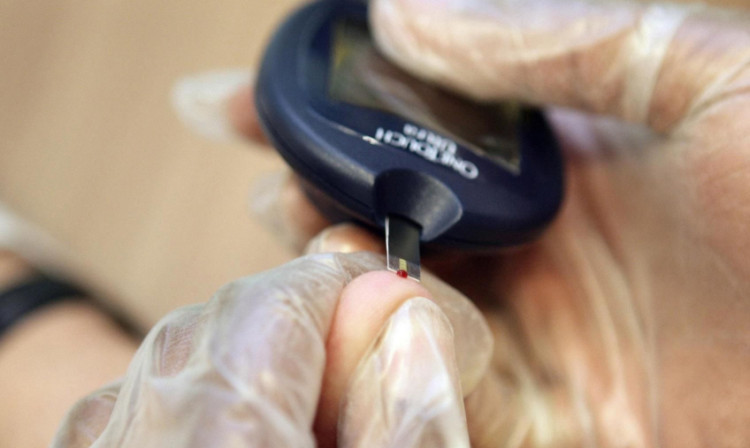A cheap drug that has been around for more than 50 years could cut the risk of diabetics dying from heart disease or stroke, Dundee University researchers have found.
Allopurinol, which has been used to treat gout, has now been shown to reduce thickening of the wall of the heart muscle in people with Type 2 diabetes, making it less likely they will suffer potentially fatal cardiovascular events.
A quarter of a million people in Scotland have been diagnosed with diabetes, although there are thought to be another 50,000 who have it but do not know.
The number of confirmed cases has risen by a quarter since 2006 and the NHS has predicted that coping with disease will take an ever greater share of its resources.
Almost two-thirds of people who develop Type 2 diabetes eventually die from heart disease or stroke, and the researchers hope their findings offer the possibility of improving their life expectancy.
Dr Jacob George, lead author on the study, said: “Cardiovascular disease is the single biggest cause of death in diabetic patients.”
He continued: “Previously, our group have looked at patients with coronary artery disease and how allopurinol helps them, but this is the first time we have looked specifically at people with Type 2 diabetes who have heart muscle thickening.
“There may be different reasons for patients with coronary heart disease and those with diabetes experiencing LVH (left ventricular hypertrophy) and although we had good reason to suppose that allopurinol should help to reduce thickening in this second group it had never been proven before.
“It was very important to show that allopurinol was able to reduce LVH in diabetics as well as non-diabetic coronary artery disease patients.
“As obesity becomes more of an issue in the UK and diabetes becomes more prevalent, this treatment could become an important weapon in improving the cardiovascular outcome in diabetic patients.”
With funding from the charity Diabetes UK, Dr George and his colleagues studied 66 Type 2 diabetes patients, half of whom who were given allopurinol and half a placebo for nine months.
The results of MRI scans showed that the thickness of the heart muscle wall was significantly reduced in the group taking the drug.
It is believed that allopurinol reduces oxidative stress, the process that leads to the production of damaging free radicals that cause thickening of the left ventricle of the heart. It also improves the health of blood vessels.
“If a larger-scale study backs up these findings then there is reason to be excited about the potential for using allopurinol as a therapy to reduce cardiovascular events in patients with Type 2 diabetes,” Dr George said.
“It has been on the market for decades so is cheap and safe and our research suggests it is a way of treating LVH without lowering blood pressure.
“This is another piece of the large jigsaw we’ve been putting together in Dundee for over the last 20 years.
“We have shown that allopurinol has potential in heart failure, coronary artery disease, stroke and now diabetes patients.
“We are building a body of evidence that will allow us to determine whether putting patients on high doses of allopurinol is a realistic way of significantly reducing cardiovascular mortality.”
